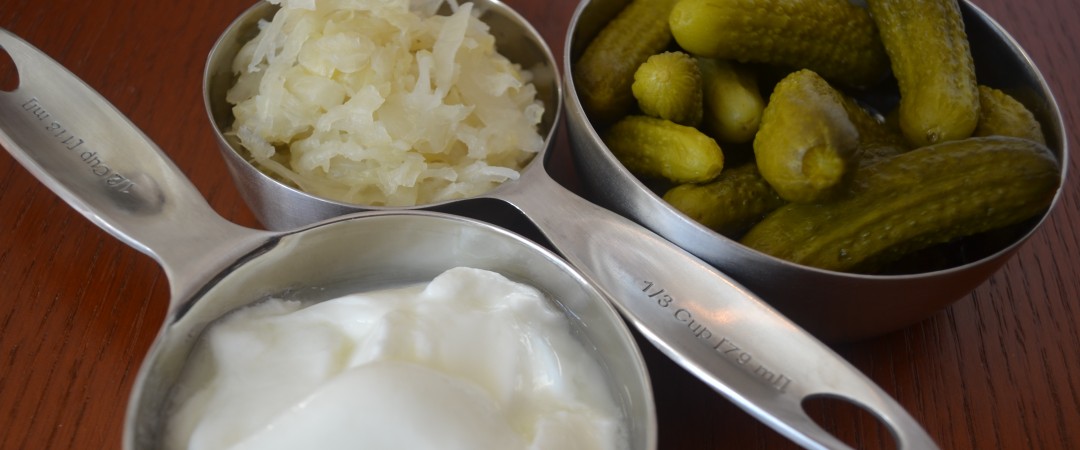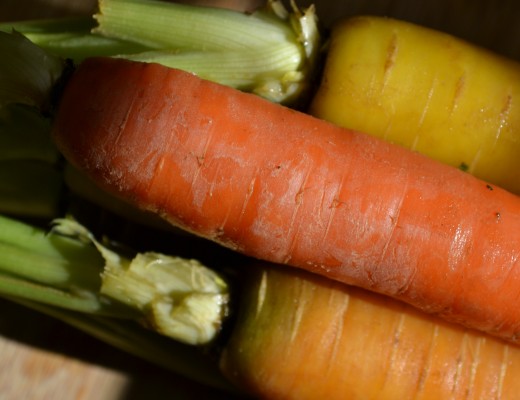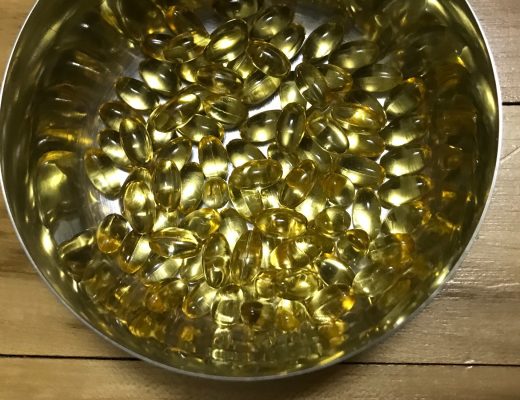At times you may think of yourself as a party-of-one but, in fact, you are never really alone. At any given time, you have over 100 trillion microbial cells living in your gut. This bacterial community is called the gut microbiota and contains ten times more cells than the cells that make up the human body. In fact, you are a super-organism, with 10% human cells and 90% bacterial cells. Theses bacteria cells are so small that their total weight is only about 2-3 pounds. Don’t let their tiny size fool you, they are very powerful allies for good health and optimal immune function.
The gut microbiota could be considered an acquired organ, as babies are born with a sterile gut that is colonized with helpful bacteria found in the birth canal and breast milk. The relationship between humans and healthy gut bacteria is mutual and beneficial to both parties. Microbes aid nutrition by producing vitamin B and K, breaking down dietary fiber into digestible short-chain fatty acids, and producing nutrients by fermentation.
Your intestinal microbiota composition is as unique as your fingerprint and its composition changes as you age. One study of 178 elderly people showed that the microbiota of people in long-term care facilities was significantly less diverse than that of community dwellers. Consequently, that loss of community microbiota was associated with increased frailty in the test group.
Even more intriguing is the evidence that gut microbiota influences behavior through the gut–brain connection. The National Institute of Mental Health has recently spent more than $1 million on a new research program aimed at the microbiome–brain connection with potential links to obesity, depression, anxiety and autism.
Give your microbiota a healthy boost by adding prebiotics and probiotics to your diet. Prebiotics are dietary fibers (short chains of sugar molecules) that are ‘food’ for the good bacteria already living in the gut. These chemicals are non-digestible by humans. Fructooligosaccharides (FOS) and inulin from artichokes, asparagus, bananas, chicory, soybeans, leeks and onions are good nutrition sources to nourish these healthy bacteria.
Eating yogurt and drinking kefir with active cultures are both good sources of fresh healthy gut bacteria. Likewise, fermented foods like sour pickles, miso, kombucha, homemade sauerkraut, tempeh, sour dough bread and kimchi provide new healthy bacteria. Probiotic, derived from Greek meaning ‘for life’, is a term first used in 1965 in opposition to antibiotic. These are bacteria found in humans that do not cause disease and are resistant to destruction by stomach acid and bile. Common dietary supplements contain Bifidobacterium (infantis, lactis, longum), Lactobacillus (acidophilus, GG, NCFM) and Saccharomyces boulardii.
You can think of your microbiota as your personal internal garden. By cultivating it with gut healthy nutrients, researchers have found improved gut bacterial profile in as quickly as 3-4 days. When thinking about eating for better health, consider the health of the tiny friends tirelessly working in your digestive tract and say “This Lassi’s for you.”
Banana Lassi Recipe – Blend, pour, and enjoy
1 cup yogurt
2 bananas
1 cup water
½ teaspoon ground cardamom
pinch of saffron



